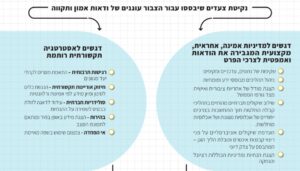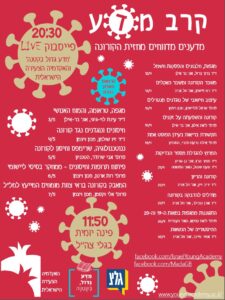מוזמנים לקרוא ולשתף את הדו”ח החדש והחשוב שלנו, המרכז תובנות מחקריות עבור מקבלי החלטות בנוגע לרתימת הציבור למאבק בקורונה

מוזמנים לקרוא ולשתף את הדו”ח החדש והחשוב שלנו, המרכז תובנות מחקריות עבור מקבלי החלטות בנוגע לרתימת הציבור למאבק בקורונה

Our new invited research note is open access on Public Understanding of Science:
For a lighter read see our blog post: Jargon in science communication research and practice
The bottom line: Writing science in a comprehensive manner is not an easy task. Excessive use of jargon is a challenge even when addressing an audience of professionals, not to mention other audiences. The identification of appropriate vs. unsuitable jargon for specific purposes and audiences is a crucial task, and tools that can help writers are always good news.
But shouldn’t we be doing more, to increase, at least, the flow of findings, needs, and experience between science communication researchers and practitioners? Adding a Practical Perspective Abstract to accompany each research article published in PUS could be a beginning, creating a shared space for exchanging ideas. Such abstracts, adapted from the primary literature to make them more useful and accessible to the diverse audiences of the journal, could be elaborated upon here, in the PUS blog, much like this post is trying to do.
Can science literacy help individuals identify misinformation in everyday life? A recent paper by Aviv and Ayelet in the prestigious journal Science Education addresses this question. Misinformation is not new, and it seems to have been on the minds of science educators with respect to vaccine hesitancy as well as other issues such as global warming and water fluoridation. However, preparing the public to identify misinformation became an even more pressing concern with the outbreak of COVID-19, which has been branded an “infodemic.” In response, over the last few years, science educators have been discussing the importance of imparting science literacy for decision-making, both in civic contexts and in the context of personal health and safety. But can science literacy help individuals distinguish reliable information from false claims in all of these contexts?
Aviv and Ayelet claim that the answer is “Yes, science literacy can help, but not in the way we usually think about it.” They show that when analyzing the components of this concept, one sees that some of its components are highly relevant to identifying misinformation, but these are not the ones commonly used in definitions of science literacy. They also focus on a specific component: intellectual virtues and habits of mind, such as open-mindedness, and argue that it should be central to imparting science literacy, because it helps individuals accept reliable information that goes against their worldview and helps them reject highly tempting misinformation that happens to conform with their worldview. They also propose some implications for educational practice, based on previous work in science education and in other fields.
אילת התארחה בפודקאסט החדש אדרבא, מבית היוצר של גל”צ והאוניברסיטה הפתוחה, לשיחה על מגפות בעידן ידיעות הכזב

Krav Mada: Scientists reporting from the Corona front
מוזמנים לקרוא את המאמר הקצר שלנו בגיליון המיוחד של “אקולוגיה וסביבה” בנושא הקורונה. סופילר: גרף הוא גם סיפור שמחכה למספר הנכון.
‘What are the ethics of mutual responsibility in a pandemic?’
This topic and other questions about religious practice, public health and community are explored in the New York Daily News article ‘Why are some ultra-Orthodox Jews flouting social distancing rules?’ by Postdoctoral Researcher Dr Lea Taragin-Zeller and Prof Ayala Fader and Prof Orit Avishai from Fordham University.
בימים אלו שמאופיינים בחוסר ודאות, אנו מנסים להיאחז בכל פיסת ידע והמוני מומחים וגם מומחים מדעת עצמם צצים תחת כל פיד רענן. למי אנחנו בוחרים להאמין ומדוע? ואיך בכל זאת נוכל לקבל החלטות מושכלות בתקופת הקורונה? אילת תתארח הערב, 19.4, ב”קרב מדע” ותדבר על תקשורת בעידן הפוסט-אמת
קרב מדע, 20:30, לייב בעמוד הפייסבוק של האקדמיה הצעירה הישראלית, של מדע גדול, בקטנה ושל גלצ.
קישור לפייסבוק :
קישור לדף :
https://www.facebook.com/pg/IsraelYoungAcademy/posts/?ref=page_internal